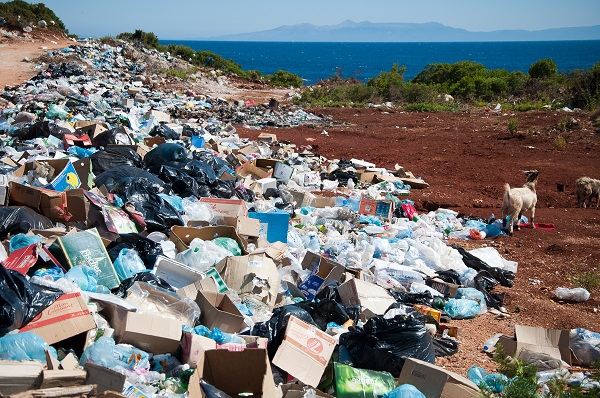Lake Revival Efforts Bring Hope to Bengaluru: Anand Malligavad’s Remarkable Impact
Bengaluru, once known as the “City of Lakes,” had witnessed the degradation and shrinking of its water bodies due to rapid urbanization and inadequate sewage and water infrastructure. However, in the past six years, a significant revival has taken place, with over 30 lakes successfully restored by Malligavad alone, and plans to revive 150 more in Bengaluru district.
These restoration projects involve cleaning and dredging the lakebed, planting indigenous trees and plants, and creating wetland areas to absorb pollutants. Malligavad’s success has garnered attention nationwide, and he has been appointed as an advisor to lake revival projects in multiple states. The efforts have not only had a positive impact on the city’s water table but have also rejuvenated public life, with citizens becoming more vocal about protecting lakes and using these restored spaces for cultural events and recreational activities.
While challenges remain, including the need to address sewage flow into the lakes and implement measures for groundwater recharge, Malligavad’s work offers hope for the revival of Bengaluru’s lost lakes and the restoration of its unique microclimate.
Vietnam Records Highest-Ever Temperature as Experts Warn of Escalating Heat Amid Climate Change

Vietnam recently reached its highest-ever temperature, exceeding 44°C (111°F), with experts cautioning that climate change will likely result in even hotter temperatures in the future. The record-setting temperature was recorded in Thanh Hoa province, prompting authorities to advise people to stay indoors during peak heat hours.
Other countries in the region, such as Thailand and Myanmar, have also experienced extreme heat, breaking previous temperature records. Climate change experts express concern over the rising temperatures, emphasizing the need for urgent action to combat global warming. As the world has already warmed by approximately 1.1°C since the industrial era began, further temperature increases are anticipated unless significant emissions reductions are implemented.
The consequences of escalating heat are evident in various countries, including Vietnam, where farmers are compelled to adjust their working hours due to the intense heat. Similar heatwaves and temperature spikes have been observed in Bangladesh, India, and Spain, underscoring the global impact of climate change. In March, climate scientists warned that the target of limiting global temperature rise to 1.5°C is likely to be missed, emphasizing that each incremental increase in global warming amplifies multiple hazards simultaneously.
A Global Plastic Treaty Offers Hope for Tackling Plastic Waste Crisis

A global, legally binding treaty under the United Nations is being developed to address the escalating issue of plastic waste. The treaty aims to go beyond recycling systems and target the root causes of plastic pollution by addressing the design and production of plastics.
Potential measures include capping overall plastic production, banning certain materials and single-use plastics, and promoting reusable alternatives.
While challenges exist, the treaty signifies a significant shift in the politics surrounding plastic waste and demonstrates a global willingness to tackle the problem. Building a reuse economy, improving recycling systems, and implementing deposit return systems are additional strategies to combat plastic waste. Negotiations for the treaty are underway, with the goal of finalizing the agreement by the end of 2024.
Unprecedented Climate Events Unfold: Oceans Warming, Antarctic Ice Decline, and Global Temperature Spikes
As of June 10, 2023, three significant climate events have captured global attention. Firstly, the Antarctic sea-ice extent has been rapidly declining, resulting in a substantial increase in open ocean, leading to further heating. Global 2-meter surface temperatures breached the 1.5°C barrier for three consecutive days, indicating a benchmark for future warming. Additionally, the North Atlantic is experiencing unprecedented ocean heating, potentially linked to the reduction in shipping sulphur emissions and the absence of Saharan dust.
These events, compounded by years of ocean heating, Earth’s energy imbalance, El Niño effects, and the Hunga Tonga-Hunga Ha’apai volcanic eruption have triggered an alarming rise in ocean surface temperatures. The consequences include intense heatwaves, fires, storms, and floods, with global temperature records expected to be shattered.
The world is heading towards surpassing the Paris 1.5°C barrier, with devastating implications for society and the environment. Amidst this crisis, efforts to reduce carbon emissions remain crucial, but the path forward appears challenging and uncertain.
Flamingo Wetlands Dry Up as Spain Battles Prolonged Drought
The passage highlights the devastating effects of a prolonged drought in Spain, with the Fuente de Piedra wetlands in Andalusia drying up and adversely affecting the pink flamingo population. Normally, thousands of flamingos would flock to the lagoon to hatch their chicks, making it one of Europe’s largest colonies.
However, due to the long-lasting drought, only a few dozen adults have been observed in the waters, while over 200,000 flamingo chicks have hatched elsewhere. The decline in water levels and the absence of the flamingos have not only impacted the ecosystem but also affected tourism in the region.
Spain has been experiencing widespread water shortages, affecting agriculture, livestock, and reservoir levels, with rainfall from October 2022 to April 2023 being 24 percent below average. The situation is indicative of the ongoing challenges posed by climate change and highlights the urgent need for water conservation and sustainable practices to mitigate the impact on vulnerable ecosystems and wildlife.



